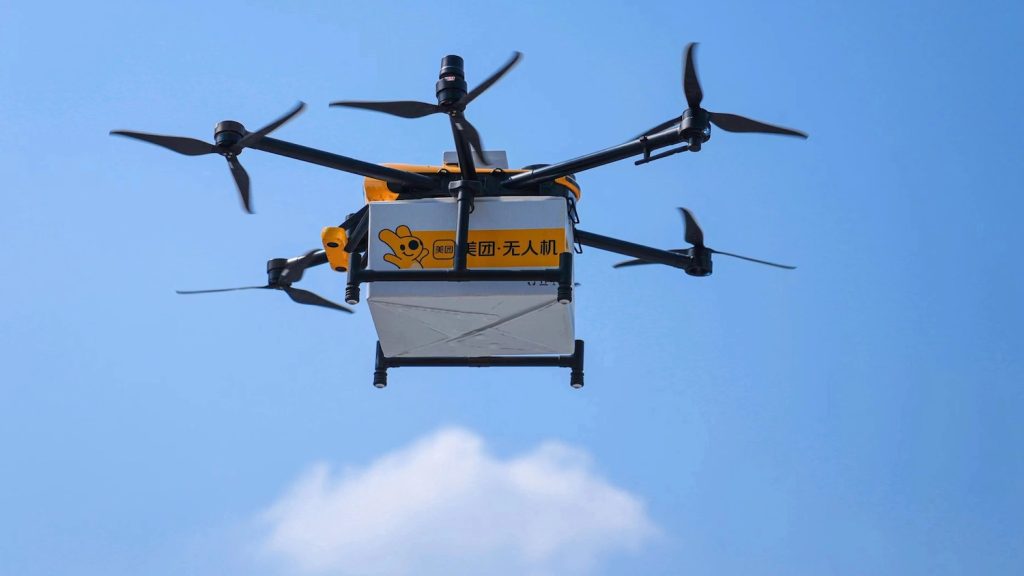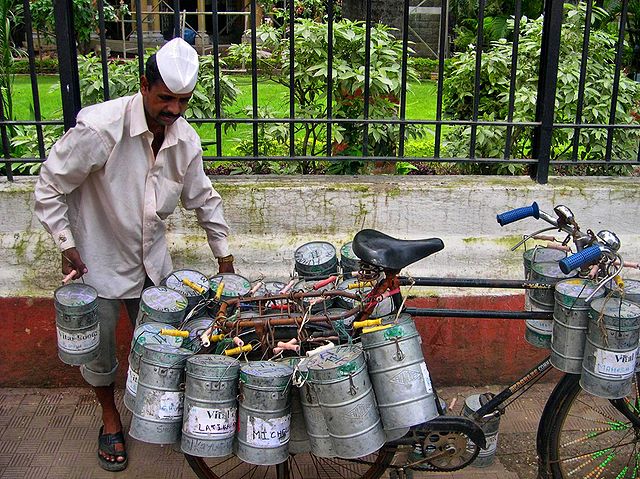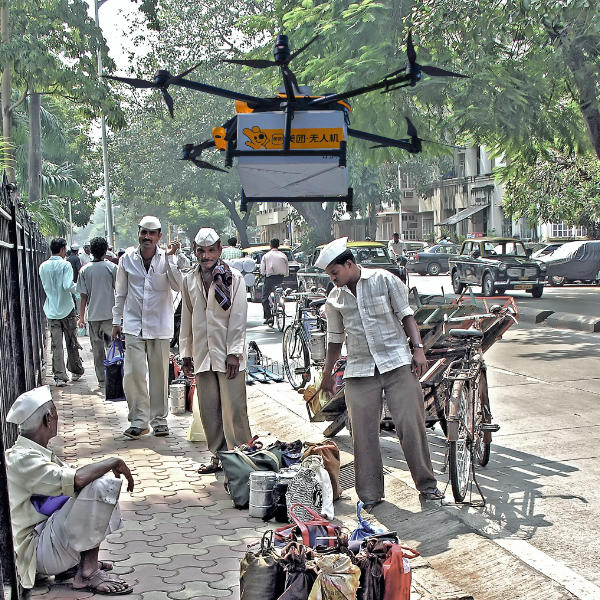Delivery drones have been in the news for the past few years. Now they are starting to be used in the real world. In the Chinese high-tech city of Shenzen, delivery drones are now delivering food.
The food comes from restaurants in a skyscraper. The roof of this skyscraper has been converted into a drone airport. The restaurants in this skyscraper now deliver their food to the roof, where employees of the Chinese company Meituan put the food into standardized boxes. These boxes fit under the belly of the drones, which then fly over the city. Their destination is a delivery station. The drones land on top of the delivery stations, unload their box, and the customer can then pick up their food at the station after authenticating themselves with a smartphone.

This is amazing, this is fascinating, but is it really necessary? The Technology Review article that introduced me to this technology had a very interesting reason for using this delivery service: It guarantees delivery. Not just delivery on time, but delivery to the customer. Apparently, there is a big problem with delivery people stealing the food they are supposed to deliver. Customers complain about this, so restaurant owners see drone delivery as a very reliable way to deliver. This has given drone delivery a boost.
Compare this to the Dabbawalas of Mumbai, India. The Dabbawalas are an association of delivery drivers. They have been delivering meals to workers and employees at their workplaces since 1890. They collect the meals in tiffin containers from the customer’s home, where the wife traditionally prepares lunch. The Dabbawalas then transport the tiffin cans by train and bicycle across the city and deliver them to their destination so that the customer can enjoy a hot lunch on time. In this way, the dabbawalas’ organization delivers up to 200,000 lunches a day through Mumbai’s dense traffic. They do this without central planning, without telephones, and with a largely illiterate workforce.
The Dabbawalas are proud of their work and even pass on their jobs to their children. And they would never eat their customers’ lunch.

This got me thinking. On the one hand, we have a very sophisticated technological system at the cutting edge of development. On the other, a loose association of delivery people who don’t need any more sophisticated technology than a bicycle. Which will be around a hundred years from now? I would bet on the Dabbawalas. And what do we learn from this? Some transportation problems don’t need new technology to solve them, just better organization and incentives.
